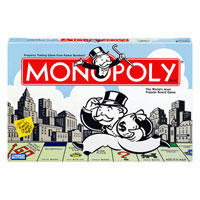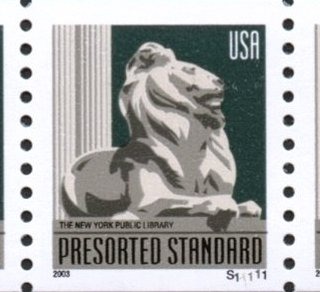Term Paper: Who benefits from keeping the poor in poverty and how do they do it? part 1.

In order for me to explore this topic, I am going to have to approach it from an oblique angle and slog my way into the center. I hope that you, the reader will take this journey with me and I hope that you will feel that it was worth it at journey’s end. I strongly believe that these are the things that form the reality that is being covered up by “Who won the game?” and “Who got voted off the island?” and all the rest of the more interesting brain candy that we are steadily offered.
Background for this discussion can be found in:
The Poor Pay More: Consumer Practices of Low-Income Families. by David Caplovitz
Why the Poor Pay More : How to Stop Predatory Lending by Gregory D. Squires
And a nice editorial by Emory Curtis here.
(and many other places)
In part one, I am going to attempt to identify some of the major players and show some of what they get out of it. These are the people and corporations that bought and paid for the US Government as we see it today.
Excerpt from: mousemusings Detailed description available at: boycottbush.net
"Top 25 Republican Party donors with consumer brands
1 Altria (formerly Philip Morris) $6.5m
2 AT&T $5.36m
3 Microsoft Corp. $5.12m
4 United Parcel Services $4.48m
5 MBNA $4.38m
6 Citigroup $3.93m
7 Pfizer $3.9m
8 FedEx Corp. $3.4m
9 Bristol-Myers Squibb $3.4m
10 GlaxoSmithKline $3m
11 Wal-Mart $2.85m
12 General Electric $2.58m
13 ExxonMobil $2.35m
14 AOL Time Warner $2.31m
15 Anheuser Busch $2.23m
16 ChevronTexaco $2.2m
17 PepsiCo $1.9m
18 Schering Plough $1.8m
19 Archer Daniels Midland $1.8m
20 Wyeth (formerly American Home Products)$1.74m
21 Alticor Inc. $1.7m
22 American Airlines $1.62m
23 Ford $1.52m
24 BP Amoco $1.25m
25 Disney $1.25m"
That list reads like a “Who’s who” of corporations wanting to buy favors from the government. In many cases, they got them too. Lots of banks, drug companies and oil, and then there’s Microsoft, that didn’t get broken up in an antitrust suit, and Disney that got the extension on the Mouse copyright, and Alticor, who makes the products for Amway, who is definitely NOT a pyramid scam! Yeah, right.
Those on this list that weren’t outright looking for favors have a vested interest in maintaining the status quo against the growing pressure for reform of one kind or another. The only one I can’t pin down is UPS, but it probably has something to do with Union busting, or wage and hiring practices. As for some of the others:
Drug companies: Making a fortune on our health insurance premiums.
Banking: Vested interest in crushing the Credit Unions and maintaining the status quo, known in the industry as “the spread” (between the rate they charge for lending and the rate they pay on your savings account).
Wal-Mart, PepsiCo, Anheuser Busch: Vested interest in low wages, and environmental non-reform.
GE: Vested interest in environmental non-reform and avoidance of legal liability for mercury pollution, etc.
Airlines: Bankruptcy protection, pension plan defaults, vested interest in weak unions.
These are just the top contributors with their hands in the consumer market. The top corporate contributors can be found here
The top “private money” fundraisers can be found here. Note the correlation between some of these “private citizens” and the industries or business sectors for which they work.
Here’s some of the things that money can buy:
Excerpt from: Public Citizen
"Holding Patients Hostage: The Unhealthy Alliance Between HMOs and Senate Leaders
Executive Summary Click Here For the Full Report Click Here for the Press Release
This timely new Public Citizen investigative report documents how campaign cash -- particularly unlimited soft money contributions -- has cemented an alliance between pro-managed care interests and Senate leaders that has thwarted strong new patients' rights protections supported by the majority of Americans. Drawing upon interviews with key lobbyists, Capitol Hill staff and written sources, the report details the intimate working relationships between two top pro-managed care trade associations that are major campaign contributors to the Republican Party -- the Blue Cross and Blue Shield Association and the National Federation of Independent Business.
Senators Lott and Nickles represent the last bastion of HMO resistance to public regulation of the managed care industry, which most Americans blame for decreasing the quality of health care. In 1998, Lott and Nickles prevented the Senate from even considering the patients' bill of rights. In 1999 they steered a relatively weak patients' rights bill through the Senate by a narrow margin. Only two months later, the House of Representatives -- including a third of the Republicans who defied their leaders -- decisively passed strong legislation.
Among the report's highlights:
Members of the pro-managed care Health Benefits Coalition (HBC) has given more than $14 million in campaign contributions to the Republican Party and its candidates since 1995 (79% of the total), according to new data analyzed by Public Citizen. Nearly 40% consisted of soft money donations to the Republican Party. Senate Republican leaders Lott and Nickles have established intimate "iron triangle" working relationships with two leading HBC donors/lobbyists: the Blue Cross and Blue Shield Association and the National Federation of Independent Business (NFIB). "
Excerpt from : Corporate Accountability International
"ACTIVISTS URGE US GOVERNMENT TO PRIORITIZE PEOPLE'S HEALTH, NOT BIG FOOD CORPORATIONS, AS FOOD GUIDELINES MOVE AHEAD
Last year, the World Health Organization (WHO) adopted a "Global Strategy on Diet, Physical Activity and Health" to respond to the growing international obesity epidemic. ... During its development, the strategy faced pressure from food corporations, industry trade groups such as the Grocery Manufacturers of America, and the US government. In the debate at the WHO, Bush Administration officials denied any connection between unhealthy foods and obesity.
"We are concerned that the Bush Administration appears willing to protect the interests of big corporations--like Cargill, Kraft and other members of the Grocery Manufacturers of America--at the expense of people's health. For starters, US government guidelines on food and nutrition should provide specific recommendations to limit sugar and salt intake, which would begin to hold powerful junk food and soft drink corporations accountable for their abuses," says Mulvey."
Excerpt from: Truthout.org , quoting a NY Times Article.
"Top G.O.P. Donors in Energy Industry Met Cheney Panel By DON VAN NATTA Jr. and NEELA BANERJEE March 1, 2002
WASHINGTON, Feb. 28 - Eighteen of the energy industry's top 25 financial contributors to the Republican Party advised Vice President Dick Cheney's national energy task force last year, according to interviews and election records.
Critics of the Bush administration's energy policy have long suspected that many of the corporations that were invited to advise the White House were large energy concerns that had contributed heavily to President Bush's campaign and the Republican Party in 2000. The White House has refused to release the names of the companies and individuals consulted during the formulation of the administration's energy policy last spring. It has been sued for the information.
But interviews and task force correspondence demonstrate an apparent correlation between large campaign contributions and access to Mr. Cheney's task force. Of the top 25 energy industry donors to the Republican Party before the November 2000 election, 18 corporations sent executives or representatives to meet with Mr. Cheney, the task force chairman, or members of the task force and its staff. The companies include the Enron Corporation (news/quote), the Southern Company, the Exelon Corporation (news/quote), BP, the TXU Corporation (news/quote), FirstEnergy (news/quote) and Anadarko Petroleum (news/quote)."
In part two, I will begin to explain how the working and non-working poor in this country fit into this picture.


4 Comments:
Great post, I really enjoy the breaks from atheist-related posts to hear ideas like this that don't get said as often as they should.
Very good series so far, breakerslion. I don't think all of these considerations are bad, though, but the fact that people still have to fuel the political machine to try to get things their way is evil in itself. I hope you'll also write against democracy and special interest politics.
Really not too surprised to see which names made the list. Never shocked enough at how easy it actually is to see what's going on. It's not hidden. It’s not just shady, underhanded deals made in dark alleys. The handshakes and payoffs can happen right out in the open. Why? People are so lethargic, ignorant, and/or pacified (or else they're privileged enough not to worry) that they don’t see what’s in front of their eyes. I believe they may actually ask the situation to “move out of the way” so they can continue to be hypnotized. Corporate scandal? My mother can’t pay her medical bills? My kids chances of getting into a college depends on which one they can afford to go to? Hunh? But, al Qaeda’s gonna get me! They’re killin’ unborn babies, dammit!! For GOD’s sake – gays are getting married!! Can’t you see? I’m white, I’m supposed to vote conservative/Republican/right wing.
Look at the names on the list of contributors and in the stories. How can somebody even manage to not hand them chunks of a paycheck? I’m pissed they used my money to build the government that institutes the systems that keep the people I love held down. I bought my own misery.
Great blog I hope we can work to build a better health care system. Health insurance is a major aspect to many.
Post a Comment
<< Home